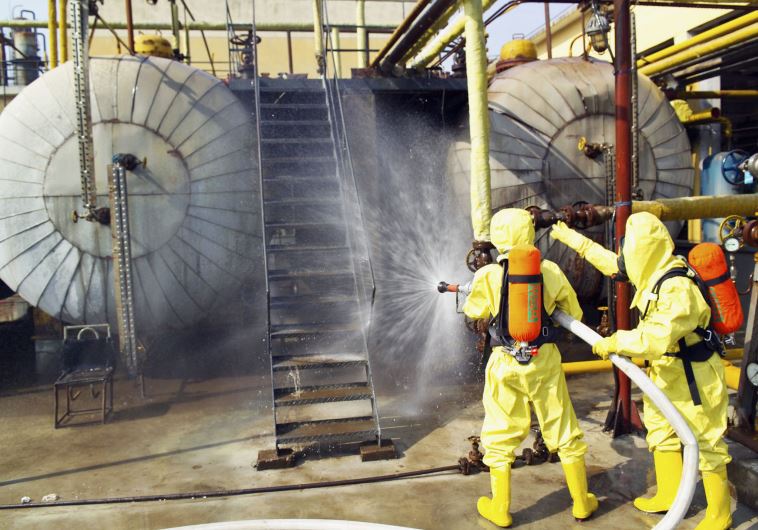Future of Haifa's ‘ticking time bomb’ ammonia tank remains uncertain
Environmentalists and politicians alike have long seen the tank, which contains all the ammonia imported by Israel, as a threat to the region.
 Firefighters use water to dilute ammonia leaking from a chemical plantUpdated:
Firefighters use water to dilute ammonia leaking from a chemical plantUpdated: